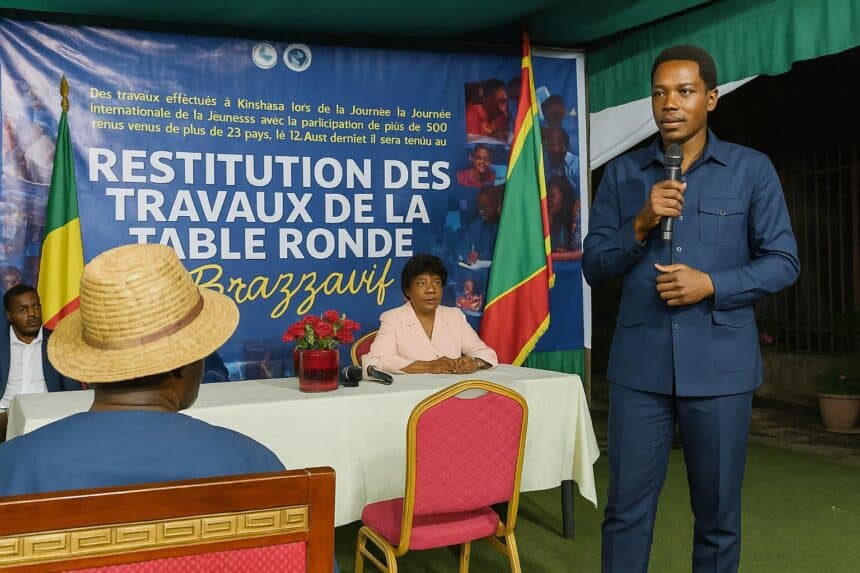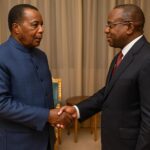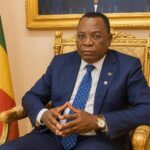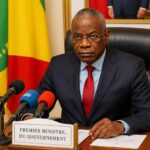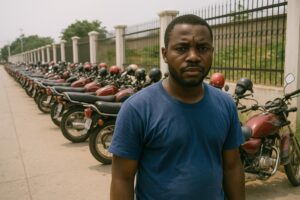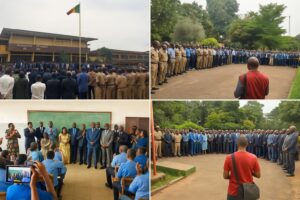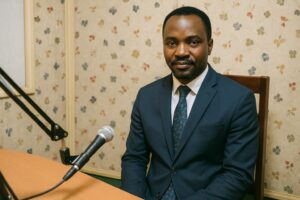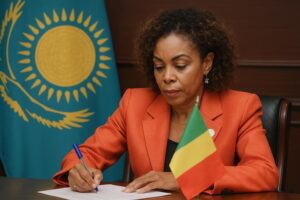Kinshasa Roundtable Echoes in Brazzaville
On 23 August, a quiet promenade near Brazzaville’s Hôtel Saphir briefly became a diplomatic microcosm as Jonathan Lumbeya Masuta, founder of the Forum International de la Jeunesse Africaine pour le Développement de l’Afrique, unveiled the Kinshasa roundtable’s findings to a curated audience of policymakers and innovators.
The initiative, known by its acronym Fijada, has grown from a 2022 start-up into a cross-border platform endorsed by youth councils in both Congos and followed by UN agencies tracking Agenda 2063 benchmarks (UNECA 2023).
Saturday’s meeting opened with the twin anthems of Congo-Brazzaville and the Democratic Republic of Congo, a symbolic prelude underscoring the river’s role as connector rather than divider for nearly thirty million citizens living on its opposite banks.
Cultural Roots and Youth Leadership
Former deputy José Cyr Ebina, hosting the session, urged participants to reclaim indigenous cultural matrices “before importing models,” saying authentic roots shield youth from extremism and economic drift. His remarks echoed recommendations in the African Union’s 2022 youth charter review.
Masuta, dressed in a navy linen suit despite the humid night, framed the continent’s demographic bonus as a strategic lever. “We are not merely statistics; we are solution-providers,” he said, repeating a mantra he first voiced during the 12 August Kinshasa forum.
Mentorship and Green Innovation Networks
He announced that Fijada’s mentorship roster now includes agritech pioneer Léonie M’Pemba of Pointe-Noire and fintech architect Dr Patrick Kalombo, both recognised in Forbes Afrique’s “30 Under 30” list (Forbes Afrique 2025). The duo will coach project incubators across Central Africa.
Ambassador Deborah Bowa Baïke then summarised the Kinshasa communique, structured around sustainable futures. Priority actions encompass scaling environmental education, facilitating green finance for start-ups, widening access to clean technologies and securing youth seats in municipal climate committees. Each pillar aligns with Congo-Brazzaville’s Nationally Determined Contribution update.
While the recommendations mirror global conversations, their local translation remains essential. Congo’s forests absorb roughly 1.5 gigatonnes of carbon annually, giving Brazzaville a tangible bargaining chip in climate diplomacy (Center for International Forestry Research 2024). Harnessing that asset requires talent cultivated early.
Mobility, Diplomacy and Agenda 2063
Dialogue soon turned pragmatic. Several attendees queried visa hurdles that still complicate intracontinental travel despite the African Continental Free Trade Area protocol. Masuta conceded progress is uneven but highlighted Republic of Congo’s recent adoption of an e-visa scheme covering regional entrepreneurs.
Scholars from Marien Ngouabi University differentiated diplomacy, traditionally state-to-state, from cooperation, often multi-actor. They argued that youth networks like Fijada inhabit a hybrid space, capable of informal shuttle diplomacy that prepares the ground for formal treaties on digital trade or green corridors.
The conversation looped back to the African Union’s Agenda 2063. Participants praised Brazzaville’s pilot of the “Great Green Wall” urban gardens, a project co-funded by the Italian Agency for Development Cooperation, as evidence that continental blueprints gain traction when local champions emerge.
Formalisation and Future Summit in Brazzaville
Ceremonial protocol followed substance. Masuta officially installed Daniel Biangoud as Fijada’s country representative, handing over a glass trophy and the Kinshasa report. Biangoud, an engineer versed in solar mini-grids, pledged to map rural youth hubs before December to avoid project congestion in capital cities.
Observers from the UN Development Programme welcomed the appointment, noting that proximity to decision-makers can accelerate grant absorption rates that currently average only 63 percent in Central Africa (UNDP 2024). They signalled readiness to integrate Fijada proposals into the next cooperation framework.
Beyond ceremony, the evening built momentum for a future Brazzaville roundtable. City officials hinted at hosting the event during Congo’s Youth Week in August 2026, subject to logistical audits and alignment with the national development plan adopted under President Denis Sassou Nguesso’s leadership.
Financing the Renaissance
Regional media outlets have already picked up the storyline, depicting Fijada as part of a quiet renaissance in Central African public diplomacy rather than an isolated NGO roadshow. Analysts point to the organisation’s tri-lingual approach and reliance on home-grown expertise as differentiators.
Financing remains the perennial question. Masuta revealed that a Paris-based impact fund has signalled interest in matching grants for eco-entrepreneurs vetted by Fijada chapters. Negotiations, he said, will respect Congo-Brazzaville’s investment code, which offers tax incentives for renewable-energy pioneers.
Toward a Continental Fabric of Empowered Youth
As the night air cooled, participants dispersed with paperback copies of the communique and a QR code linking to follow-up webinars. The modest gathering hinted at a larger ambition: weaving a continental fabric of empowered young citizens able to reconcile growth, stability and ecological stewardship.

